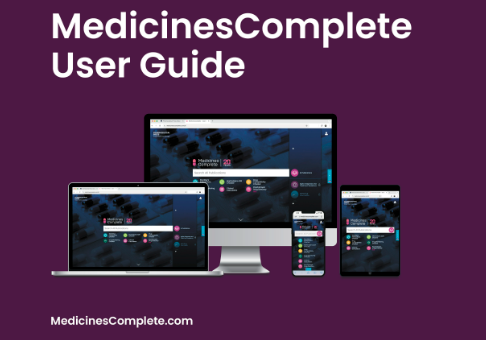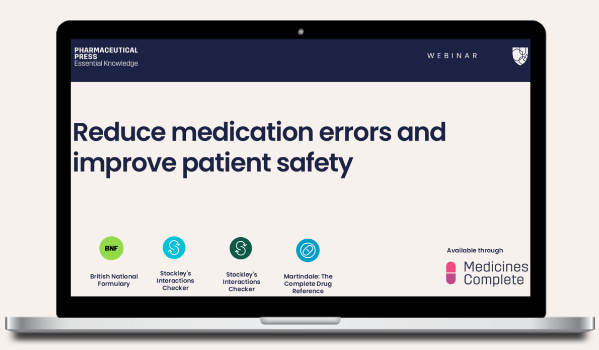Clarity’s DTG April 2022 Update
This update contains 7 significant changes, 20 minor changes and 1 new topic.
Significant Changes:
- Molloscum contagiosum – reviewed. A literature search was conducted in March 2022 to identify evidence-based guidelines, UK policy, systematic reviews, and key randomized controlled trials published since the last revision of the topic. No changes to clinical recommendations have been made. A section on Risk factors has been added to Background information.
- Breathlessness – reviewed. A literature search was conducted in February 2022 to identify evidence-based guidelines, UK policy, systematic reviews, and key randomized controlled trials published since the last revision of this topic. The topic has undergone some structural changes, but there have been no major changes to the recommendations.
- Cough – acute with chest signs in children – reviewed. A literature search was conducted in February 2022 to identify evidence-based guidelines, UK policy, systematic reviews, and key randomized controlled trials published since the last revision of this topic. The topic has undergone restructuring. No major changes to the recommendations have been made.
- Haematospermia – reviewed. Literature searches were conducted in February 2022 to identify evidence-based guidelines, UK policy, systematic reviews, and key randomized controlled trials published since the last revision of this topic. No major changes to recommendations have been made.
- Breastfeeding problems – reviewed. A literature search was conducted in November 2021 to identify evidence-based guidelines, UK policy, systematic reviews, and key randomized controlled trials published since the last revision of the topic. Changes have been made to the section on management of suspected ductal infection to reflect a lack of evidence of the role of bacteria and yeast and to support the judicious use of antimicrobials.
- Hiccups – reviewed. A literature search was conducted in January 2022 to identify evidence-based guidelines, UK policy, systematic reviews, and key randomized controlled trials published since the last revision of this topic. No major changes to recommendations have been made.
- Cervical cancer and HPV – reviewed. A literature search was conducted in January 2022 to identify evidence-based guidelines, UK policy, systematic reviews, and key randomized controlled trials published since the last revision of the topic. Some minor structural changes have been made to the topic. The recommendations on assessment and management have been updated in line with current evidence in the literature. A new section on Assessment has been added to the Diagnosis section.
Minor Changes:
- Insomnia – minor update. Link to Mental Health Foundation has been updated.
- Otitis externa – minor update. Cetraxal® (ciprofloxacin 2 mg/mL ear drops solution in a single-dose container) and Cetraxal plus® added to the topical preparations table. Cilodex® removed and generic combined preparation ciprofloxacin and dexamethasone added.
- Sciatica (lumbar radiculopathy) – minor update. The results of a systematic review to determine the accuracy of digital rectal examination (DRE) in people with suspected cauda equina syndrome have been added to the basis for recommendation in the section on diagnosis.
- Immunizations – childhood – minor update. Information that the severe combined immunodeficiency (SCID) screening result should be checked before giving BCG or rotavirus vaccines has been added to this topic in line with UK Health Security Agency (UKHSA) guideline The complete routine immunisation schedule February 2022. A recommendation that people who have not had their first dose of HPV vaccine by the time they are 15 years old should be offered two doses given at least 6 months apart has been added in line with the UK Health Security Agency letter Changing to a 2 dose NHS HPV vaccination schedule for eligible adolescents and adults starting the course after they turn 15 years old, including men who have sex with men (MSM).
- Colic – infantile – minor update. A link to a patient information leaflet has been removed from this topic.
- Otitis media – acute – minor update to incorporate new advice provided in NICE [NG91] Otitis media (acute): antimicrobial prescribing, March 2022. Added advice to follow up people and review treatment if symptoms do not improve within 7 days or worsen at any time. A further recommendation added for children and young people to prescribe ear drops containing an anaesthetic and an analgesic for up to 7 days if an immediate oral antibiotic prescription is not given, and there is no ear drum perforation or otorrhoea. A new prescribing section on phenazone and lidocaine drops, Otigo® has been added.
- Generalized anxiety disorder – minor update. Contraindication to pregabalin use in pregnancy unless the benefits to the mother outweigh the risks to the foetus in line with the manufacturers summary of product characteristics.
- Anticoagulation – oral – minor update. Recommendations on managing people who are undergoing dental treatment and taking DOAC anticoagulants have been added and recommendations on people taking warfarin have been updated in line with the NHS Education for Scotland guidance Management of dental patients taking anticoagulants or antiplatelet drugs.
- Hypertension – minor update to align with the update in NICE [NG136] Hypertension in adults: diagnosis and management. Acute respiratory toxicity has been added as a very rare adverse effect of hydrochlorothiazide in line with the updated manufacturer’s Summary of Product Characteristics.
- Menopause – minor update. Added detail to recommendation regarding progestogen regimes in non-hysterectomised women taking sequential HRT.
- Multiple myeloma – minor update. The basis of recommendation section in management of suspected myeloma has been updated to add evidence to the recommendation that a serum-free light chain assay should be arranged for people with suspected multiple myeloma.
- Hypercholesterolaemia – familial – minor update. Minor text changes have been made to clarify the recommendation to offer a lipid-lowering drug.
- Palliative care – general issues – minor update. Reference to Mari Curie in this topic has been updated to reflect a change in the charity’s name.
- Anaemia – B12 and folate deficiency – minor update. Update to the management of neurological complications added the recommendation to seek advice from a neurologist.
- Giant cell arthritis – minor update. Wegener’s granulomatosis is now known as granulomatosis with polyangiitis.
- Pulmonary embolism – minor update. A typographical error has been corrected.
- Neuropathic pain drug treatment – minor update. Information about the use of pregabalin in pregnancy has been updated in line with the manufacturer’s Summary of Product Characteristics.
- Neck pain – cervical radiculopathy – minor update. The section on red flags has been clarified and updated.
- Neck pain – non-specific – minor update. The section on red flags has been clarified and updated.
- Diabetes type 2 – minor update. Updated renal thresholds for prescribing empagliflozin in line with updated manufacturers summary of product characteristics.
New Topic:
- Rehabilitation after traumatic injury – new topic – this is a new Clarity’s DTG topic. The evidence base has been reviewed in detail, and recommendations are clearly justified and transparently linked to the supporting evidence.





